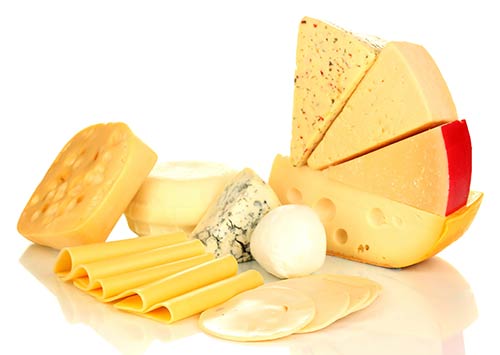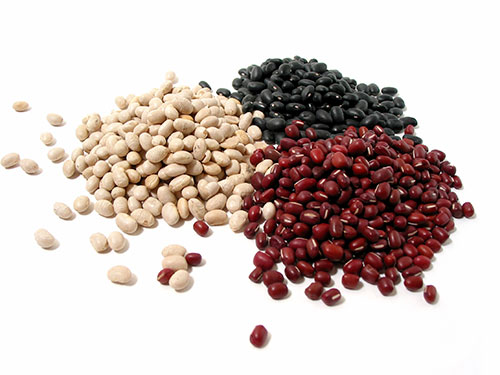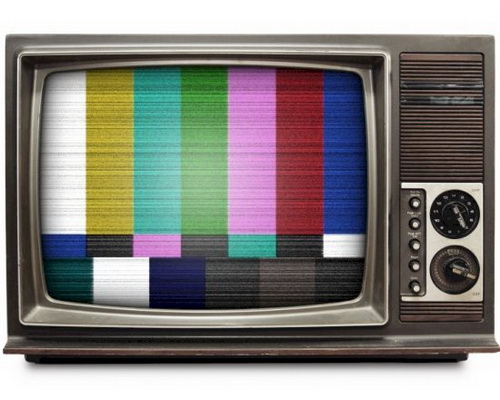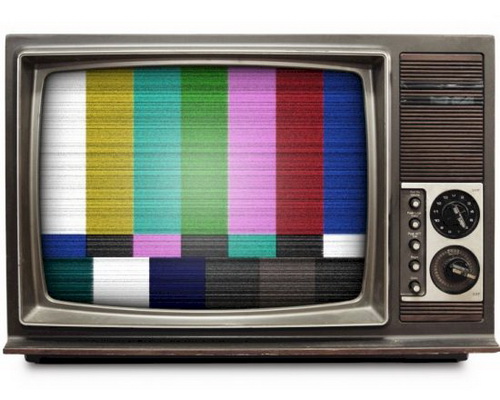cheese
a solid food made from milk, which is usually yellow or white in colour, and can be soft or hard

پنير
Cut the cheese into cubes.
پنیر را به شکل مربع قطعه قطعه کن.
a solid food made from milk, which is usually yellow or white in colour, and can be soft or hard

پنير
Cut the cheese into cubes.
پنیر را به شکل مربع قطعه قطعه کن.
Oxford Essential Dictionary
cheese
noun
a yellow or white food made from milk:
bread and cheese
Longman Dictionary of Contemporary English
cheese
cheese S2 W3 /tʃiːz/ BrE AmE noun [uncountable and countable]
[Language: Old English; Origin: cese]
1. a solid food made from milk, which is usually yellow or white in colour, and can be soft or hard:
half a kilo of cheese
a cheese sandwich
Sprinkle with the grated cheese.
a selection of English cheeses
piece/bit/slice/lump etc of cheese
cow’s/goat’s/sheep’s cheese (=from the milk of a cow etc)
2. (say) cheese! spoken used to tell people to smile when you are going to take their photograph
⇨ big cheese, ⇨ chalk and cheese at chalk1(3)
• • •
COLLOCATIONS
■ phrases
▪ a piece/bit of cheese Would you like a piece of cheese?
▪ a slice of cheese Sue cut six thin slices of cheese.
▪ a lump/hunk of cheese (=a large piece) We just had bread and a hunk of cheese for lunch.
▪ a wedge of cheese (=a piece which is thin at one end and thick at the other) I bought a half pound wedge of cheese.
▪ bread and cheese Lunch was bread and cheese.
▪ cheese and biscuits After the meal we had coffee with cheese and biscuits.
▪ cheese on toast (=melted cheese on toast) Would you like some cheese on toast?
■ adjectives
▪ strong This is one of the strongest French cheeses.
▪ mild (=without a strong taste) The cheese is mild and creamy.
▪ hard cheese Use a hard cheese such as Cheddar for grating.
▪ soft cheese (=that you can spread) Camembert is my favourite soft cheese.
▪ grated cheese (=that has been cut into many small pieces using a special tool) Cover the vegetables with the grated cheese.
▪ melted cheese Nachos are good with melted cheese.
▪ goat's cheese (=made from goat's milk)
▪ cream cheese (=a type of soft smooth white cheese)
▪ cottage cheese (=a type of soft white cheese with small lumps in it)
▪ blue cheese (=a type of cheese with blue lines in it and a strong taste)
▪ processed cheese (=with substances added to preserve it)
■ verbs
▪ grate cheese (=cut it into many small pieces using a special tool) Would you grate some cheese for me?
▪ sprinkle cheese over/on something (=put small pieces of cheese over/on something) Sprinkle the cheese over the top.
▪ top something with cheese (=put cheese on top of something) Top the potatoes with grated cheese.
■ cheese + NOUN
▪ a cheese sandwich I'll make you a cheese sandwich.
▪ a cheese omelette Lunch was a cheese omelette with salad.
▪ (a) cheese sauce I made a cheese sauce to go with the pasta.
big cheese
ˌbig ˈcheese BrE AmE noun [countable] informal
[Date: 1900-2000; Origin: cheese probably from Urdu chiz 'thing', from Persian]
an important and powerful person in an organization – used humorously
Oxford Advanced Learner's Dictionary
cheese
cheese [cheese cheeses cheesed cheesing] [tʃiːz] [tʃiːz] noun
1. uncountable, countable a type of food made from milk that can be either soft or hard and is usually white or yellow in colour; a particular type of this food
• Cheddar cheese
• goat's cheese (= made from the milk of a goat )
• a cheese sandwich/salad
• a chunk/piece/slice of cheese
• a selection of French cheeses
• a cheese knife (= a knife with a special curved blade with two points on the end, used for cutting and picking up pieces of cheese)
2. cheese! what you ask sb to say before you take their photograph
see a big cheese at big adj., chalk and cheese at chalk n., hard cheese at hard adj.
Word Origin:
Old English cēse, cȳse, of West Germanic origin; related to Dutch kaas and German Käse; from Latin caseus.
Example Bank:
• Cut the cheese into cubes.
• Sprinkle the cheese over the beans.
• Sprinkle the potatoes with grated cheese and grill for a few minutes.
(a) big cheese
a ˌbig ˈcheese idiom
(informal, humorous) an important and powerful person, especially in an organization
Main entry: bigidiom
Cambridge Advanced Learner's Dictionary
Cambridge Advanced Learner's Dictionary - 4th Edition
cheese / tʃiz / noun [ C or U ]
A1 a food made from milk, that can be either firm or soft and is usually yellow or white in colour:
Would you like a slice/piece of cheese with your bread?
goat's cheese
You need 250 grams of grated cheese for this recipe.
I like soft French cheeses such as Brie and Camembert.
I prefer hard cheeses, like cheddar.
cheese and biscuits
© Cambridge University Press 2013
Collins COBUILD Advanced Learner’s English Dictionary
cheese
[tʃi͟ːz]
♦♦♦
cheeses
1) N-MASS Cheese is a solid food made from milk. It is usually white or yellow.
...bread and cheese.
...cheese sauce...
He cut the mould off a piece of cheese.
...delicious French cheeses.
2) PHRASE: N inflects Someone who has a very important job or position can be referred to as a big cheese. [INFORMAL]
He is a big cheese in the Art Fraud Squad.
...big cheeses from the State Department.
3) PHRASE: V inflects If someone tells you to say `cheese' when they are taking your photograph, they are indicating that they want you to smile.
4) as different as chalk and cheese
Merriam-Webster's Advanced Learner's Dictionary
cheese
cheese /ˈʧiːz/ noun, pl chees·es : a yellow or white solid food that is made from milk
[noncount]
• a piece of cheese
• Sprinkle the casserole with cheese.
• grated/melted cheese
[count]
• imported cheeses
• a mild cheese
- often used before another noun
• cheese sandwiches/omelets
• a cheese [=cheesy] sauce/spread
say cheese
✦If you say the word “cheese” in an exaggerated way, you look like you are smiling, so someone who is taking your photograph and wants you to smile will tell you to say cheese.
- see also big cheese

















